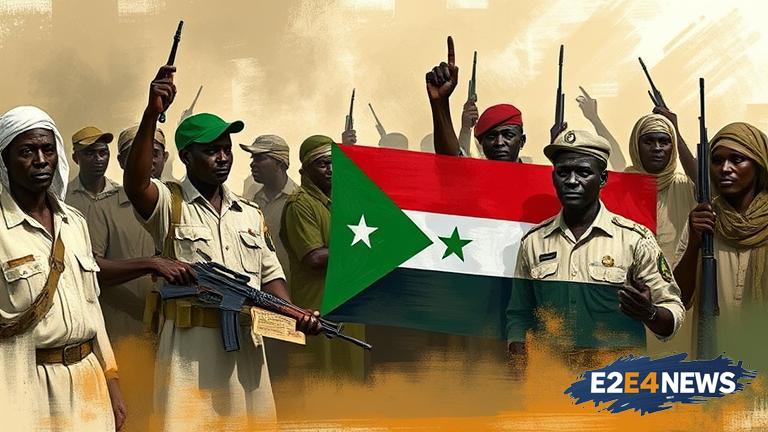The situation in Sudan has taken a dire turn with the announcement of a parallel government by the Rapid Support Forces (RSF), a rebel group that has been at odds with the transitional government. This move has sparked widespread concern and escalated the risk of a national split. The RSF, led by General Mohamed Hamdan Dagalo, has been a key player in Sudan’s politics since the ousting of former President Omar al-Bashir in 2019. The group has been instrumental in maintaining security in the country, but its relationship with the transitional government has been strained. The announcement of a parallel government is seen as a bold move by the RSF to consolidate its power and influence in the country. The transitional government, led by Prime Minister Abdalla Hamdok, has condemned the move, calling it a ‘coup’ and a ‘threat to the country’s stability’. The international community has also expressed concern, with the United Nations and the African Union urging calm and restraint. The situation on the ground is tense, with reports of clashes between RSF forces and government troops. The economy is also suffering, with the Sudanese pound plummeting in value and inflation soaring. The humanitarian situation is dire, with millions of people in need of aid and thousands displaced by the conflict. The RSF’s announcement has also sparked fears of a return to the dark days of Sudan’s past, when the country was plagued by civil war and human rights abuses. The international community is calling for restraint and dialogue, but the situation remains volatile. The United States, the European Union, and other major powers have urged the parties to engage in talks and find a peaceful resolution. The African Union has also offered to mediate, but so far, there has been no breakthrough. The situation in Sudan is a complex web of politics, ethnicity, and geography, with multiple factions and interests at play. The RSF’s announcement has added a new layer of complexity to the situation, and it remains to be seen how the situation will unfold. The country’s future hangs in the balance, and the international community is watching with bated breath. The people of Sudan are bearing the brunt of the conflict, and it is imperative that a peaceful resolution is found soon. The RSF’s move has also raised questions about the role of the military in Sudan’s politics and the need for reform. The country’s transition to democracy has been slow and painful, and the latest developments have set back progress. The international community must continue to support the people of Sudan and encourage the parties to engage in dialogue and find a peaceful resolution. The situation in Sudan is a reminder of the fragility of peace and the need for continued engagement and support. The country’s future is uncertain, but one thing is clear: the international community must continue to support the people of Sudan and encourage a peaceful resolution to the conflict.
